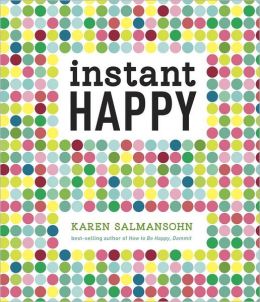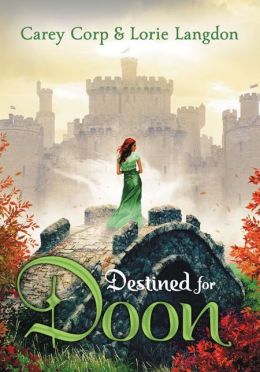The Survivor’s Side of Suicide
Suicide is one ugly word. It’s the kind of word that swings
heavy from lips. The kind that is whispered, and stilted, never sung.
As an author, I build my life around words. Every word has worth. Even those words we are not supposed to say. But suicide is the one word I do not like. I wish there was no need for such a word in our world. Especially since 1997, when my teen brother ended his own life two months before his high school graduation.
It is one thing to be on the other side of suicide, where you may offer prayer or casseroles or even a hug. It is another thing entirely to be on the side of the survivor, after a loved one puts a gun to the head or a rope to the neck or a blade to the vein. That dark depth of despair is no easy channel to navigate because unlike every other form of death, this one was intentional. This one could have been prevented. This one carries immeasurable sting.
The what-ifs and but whys and I wonders never cease. They haunt all hours, whether moonlit or shine. And the stares don’t stop either, the constant conversation that hangs silently between friends -- at the grocery store, or in the church pews, or at the birthday party. No one says it, but they are thinking... That poor mother, how does she stand it? Or - That poor child, knowing his father took his own life.
What people on that side of suicide don’t understand is that we, the survivors left in the wake, are barely keeping our heads above water. We don’t want pity, or sympathy, or stares. We don’t want whispers, or questions, or help. We want one thing only. We want our loved ones back. And there’s one simple way you can give this to us.
Talk about the people we loved and lost. Don’t dance around us as if their ghost is in the way. Acknowledge the lives they lived. Recognize the light they once shined. Laugh about the fun you once had together.
There’s nothing you can tell us -- no detail too small, no memory too harsh -- that will hurt us. We crave it all. We are hungry for any piece of time travel you offer. Bring us back, to that space, when the one we loved was in the here and now.
Suicide is something most of us struggle to understand. It is difficult to rationalize the selfish part of such an act. How could someone not care about the pain they would throw on their loved ones? How could someone not be strong enough to stay alive?
But here’s the truth: suicide was not the cause of my brother’s death. Depression was the cause of his death. And depression is a beast unlike any other. It is an illness we still struggle to cure, despite all the therapeutic and pharmaceutical intervention available today.
Sometimes, even with all the help in the world, a person cannot see through the pain. They cannot imagine a better day ahead. They see only more hurt. And when I say hurt, I mean suffering. Blood-zapping, brain-numbing, soul-bursting agony.
Imagine this: you wake every day as a prisoner. You are trapped in a cell with no freedom in your future. You are tortured -- physically, emotionally, psychologically. The anguish never stops. Just when you think you cannot survive another blow, it comes again. More pain.
You try to ignore the ache. You cannot. You try to numb the hurt. You cannot. You try to rise above the pain. You cannot. The brutality persists. And you see no end to it.
If you knew you had to endure only one more round of abuse, or one more month, or even a year, or longer. If there was an end in view, you could be strong enough to handle it. You could take whatever is thrown at you because you want, more than anything else, to live.
You are a sensitive soul and you have so much left in you to give. You want only to love and be loved. But the cell has you trapped. You have tried everything. There is no end to the insufferable situation.
A person with depression becomes suicidal when they finally give up all hope. When they accept that nothing they do, no matter how long they survive, no matter how many medications or prayers or therapists they turn to, the pain will never end.
Can you imagine the pain you would have to be in to take your own life? Can you imagine the fear of a suicidal person (regardless of faith), daring to face the unknown because even the possibility of eternal hellfire or permanent purgatory or absolute absence seems less scary than another day in this world?
When Robin Williams passed away, the world was abuzz weighing the controversial issues of mental illness, depression, and suicide. While some people were unable to extend kindness or understanding, proving we have a long way to go in our culture’s recognition of chemical imbalances, the international conversation gave me hope. It proved that people are finally willing to say the word SUICIDE out loud, without the hushed whispers and back corner gossip. Putting this word on equal footing with all the other words in our vernacular is important. It lessens the sting.
I consider this progress, and I am optimistic the forward momentum will continue. It is time.
As an author, I build my life around words. Every word has worth. Even those words we are not supposed to say. But suicide is the one word I do not like. I wish there was no need for such a word in our world. Especially since 1997, when my teen brother ended his own life two months before his high school graduation.
It is one thing to be on the other side of suicide, where you may offer prayer or casseroles or even a hug. It is another thing entirely to be on the side of the survivor, after a loved one puts a gun to the head or a rope to the neck or a blade to the vein. That dark depth of despair is no easy channel to navigate because unlike every other form of death, this one was intentional. This one could have been prevented. This one carries immeasurable sting.
The what-ifs and but whys and I wonders never cease. They haunt all hours, whether moonlit or shine. And the stares don’t stop either, the constant conversation that hangs silently between friends -- at the grocery store, or in the church pews, or at the birthday party. No one says it, but they are thinking... That poor mother, how does she stand it? Or - That poor child, knowing his father took his own life.
What people on that side of suicide don’t understand is that we, the survivors left in the wake, are barely keeping our heads above water. We don’t want pity, or sympathy, or stares. We don’t want whispers, or questions, or help. We want one thing only. We want our loved ones back. And there’s one simple way you can give this to us.
Talk about the people we loved and lost. Don’t dance around us as if their ghost is in the way. Acknowledge the lives they lived. Recognize the light they once shined. Laugh about the fun you once had together.
There’s nothing you can tell us -- no detail too small, no memory too harsh -- that will hurt us. We crave it all. We are hungry for any piece of time travel you offer. Bring us back, to that space, when the one we loved was in the here and now.
Suicide is something most of us struggle to understand. It is difficult to rationalize the selfish part of such an act. How could someone not care about the pain they would throw on their loved ones? How could someone not be strong enough to stay alive?
But here’s the truth: suicide was not the cause of my brother’s death. Depression was the cause of his death. And depression is a beast unlike any other. It is an illness we still struggle to cure, despite all the therapeutic and pharmaceutical intervention available today.
Sometimes, even with all the help in the world, a person cannot see through the pain. They cannot imagine a better day ahead. They see only more hurt. And when I say hurt, I mean suffering. Blood-zapping, brain-numbing, soul-bursting agony.
Imagine this: you wake every day as a prisoner. You are trapped in a cell with no freedom in your future. You are tortured -- physically, emotionally, psychologically. The anguish never stops. Just when you think you cannot survive another blow, it comes again. More pain.
You try to ignore the ache. You cannot. You try to numb the hurt. You cannot. You try to rise above the pain. You cannot. The brutality persists. And you see no end to it.
If you knew you had to endure only one more round of abuse, or one more month, or even a year, or longer. If there was an end in view, you could be strong enough to handle it. You could take whatever is thrown at you because you want, more than anything else, to live.
You are a sensitive soul and you have so much left in you to give. You want only to love and be loved. But the cell has you trapped. You have tried everything. There is no end to the insufferable situation.
A person with depression becomes suicidal when they finally give up all hope. When they accept that nothing they do, no matter how long they survive, no matter how many medications or prayers or therapists they turn to, the pain will never end.
Can you imagine the pain you would have to be in to take your own life? Can you imagine the fear of a suicidal person (regardless of faith), daring to face the unknown because even the possibility of eternal hellfire or permanent purgatory or absolute absence seems less scary than another day in this world?
When Robin Williams passed away, the world was abuzz weighing the controversial issues of mental illness, depression, and suicide. While some people were unable to extend kindness or understanding, proving we have a long way to go in our culture’s recognition of chemical imbalances, the international conversation gave me hope. It proved that people are finally willing to say the word SUICIDE out loud, without the hushed whispers and back corner gossip. Putting this word on equal footing with all the other words in our vernacular is important. It lessens the sting.
I consider this progress, and I am optimistic the forward momentum will continue. It is time.
I write this blog today for several reasons:
· One, I am proud to have been the sister to an amazingly bright spirit who left this world too soon and whose memory I want to keep alive.
· Two, I want to increase understanding and support for the millions of people struggling with chemical imbalances.
· Three, I want to offer support and empathy to all who have lost a loved one to suicide and encourage you to speak out loud to honor their spirit and to educate those on the other side.
· Four, and most importantly, I have a very important message for anyone struggling with depression.
One week after my brother died, we received notice that he had landed the career opportunity he wanted with the Department of Wildlife and Fisheries. That job may have been enough to offer him the key to that cell, the something to cling to, the reason for reason. Maybe, if he could have stuck it out one more week, he would still be alive today. Seven days, and he may have had hope again.
Today, when I see someone struggling for hope, looking for a signal, a reason, proof that their life matters and that the pain will indeed end, I think of my brother and that phone call that came one week too late.
If you are struggling with depression, please remember... you are in this world for a reason. You have a very important journey you must complete. You were born to accomplish something, something only you know. You will suffer, you will hurt, you will feel hopeless and alone at times. But you are not in that space forever. Keep walking, keep moving forward, and you will find your way through in time.
When you hit bottom, please remember this: You are loved. You are never alone. You were born with everything you need to survive this journey. You matter.
And once you are on the other side, as you will soon be, then, you will look back with wiser eyes, the eyes of a survivor. You will know your soul survived the stretching season. And you will move through the world with greater empathy and understanding, a gift like none other. For you, sensitive one, are the blessed. And we need you here. In this life.
Be brave. Wage war. Hold fast to the light inside of you.
"For God hath not given us the spirit of fear; but of power, and of love, and of a sound mind." 2 Timothy 1:7
· One, I am proud to have been the sister to an amazingly bright spirit who left this world too soon and whose memory I want to keep alive.
· Two, I want to increase understanding and support for the millions of people struggling with chemical imbalances.
· Three, I want to offer support and empathy to all who have lost a loved one to suicide and encourage you to speak out loud to honor their spirit and to educate those on the other side.
· Four, and most importantly, I have a very important message for anyone struggling with depression.
One week after my brother died, we received notice that he had landed the career opportunity he wanted with the Department of Wildlife and Fisheries. That job may have been enough to offer him the key to that cell, the something to cling to, the reason for reason. Maybe, if he could have stuck it out one more week, he would still be alive today. Seven days, and he may have had hope again.
Today, when I see someone struggling for hope, looking for a signal, a reason, proof that their life matters and that the pain will indeed end, I think of my brother and that phone call that came one week too late.
If you are struggling with depression, please remember... you are in this world for a reason. You have a very important journey you must complete. You were born to accomplish something, something only you know. You will suffer, you will hurt, you will feel hopeless and alone at times. But you are not in that space forever. Keep walking, keep moving forward, and you will find your way through in time.
When you hit bottom, please remember this: You are loved. You are never alone. You were born with everything you need to survive this journey. You matter.
And once you are on the other side, as you will soon be, then, you will look back with wiser eyes, the eyes of a survivor. You will know your soul survived the stretching season. And you will move through the world with greater empathy and understanding, a gift like none other. For you, sensitive one, are the blessed. And we need you here. In this life.
Be brave. Wage war. Hold fast to the light inside of you.
"For God hath not given us the spirit of fear; but of power, and of love, and of a sound mind." 2 Timothy 1:7
Julie Cantrell is the New
York Times and USA TODAY
bestselling author of Into the Free
and When Mountains Move. She works to
promote suicide awareness and prevention in memory of her brother, Jeff
Perkins. Learn more: www.juliecantrell.com









